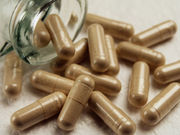Patients receiving highest dose of L. reuteri have increases in insulin sensitivity index versus baseline
FRIDAY, Dec. 30, 2016 (HealthDay News) — For patients with type 2 diabetes on insulin therapy, oral supplementation with Lactobacillus reuteri DSM 17938 does not affect glycated hemoglobin (HbA1c), according to a study published online Dec. 23 in Diabetes, Obesity and Metabolism.
Reza Mobini, Ph.D., from the University of Gothenburg and Sahlgrenska University Hospital in Sweden, and colleagues randomized 46 patients with type 2 diabetes to 12 weeks of placebo or a low dose or high dose of L. reuteri DSM 17938.
The researchers found that 12 weeks of L. reuteri DSM 17938 supplementation did not affect HbA1c, liver steatosis, adiposity, or microbiota composition. Compared with baseline, there were increases in insulin sensitivity index (ISI) and serum levels of the secondary bile acid deoxycholic acid (DCA) among patients who received the highest dose of L. reuteri; in between-group analyses these differences were not significant. Patients who responded with increased ISI following L. reuteri supplementation had higher microbial diversity at baseline in post-hoc analyses, as well as increased serum levels of DCA after supplementation. There was a correlation for increases in DCA levels with improvement in insulin sensitivity in the probiotic recipients.
“Intake of L. reuteri DSM 17938 for 12 weeks did not affect HbA1c in patients with type 2 diabetes on insulin therapy,” the authors write. “However, L. reuteri improved insulin sensitivity in a subset of patients and we propose that high diversity of the gut microbiota at baseline may be important.”
Two authors disclosed ties to Metabogen AB; the study was partially funded by BioGaia.
Full Text (subscription or payment may be required)
Copyright © 2016 HealthDay. All rights reserved.








